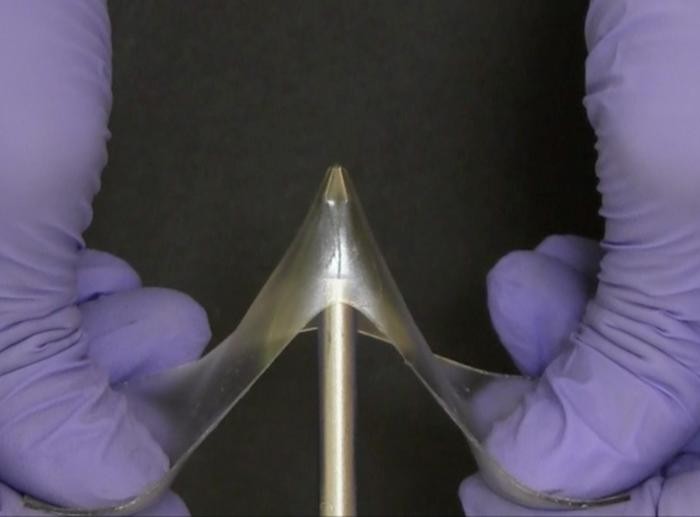A group of researchers at North Carolina State University (NCSU) have created a new self-healing gel that is as strong as glass but can stretch up to five times its length. The discovery is similar to other breakthroughs we’ve seen recently, including a new glass that can heal when exposed to water.
The researchers refer to their new invention as a totally new class of material called “glassy gels.” Much like the previously mentioned self-healing glass, this new class of materials wasn’t the goal, Michael Dickey, a materials scientist at the university, admitted in a press release.
“We stumbled into these interesting materials,” Dickey says. The discovery of the self-healing gel came when another NCSU researcher, Meixiang Wang, was experimenting with ionogels—a group of materials made up of a polymer that is swollen using ionic liquid that can conduct electricity.
Dickey says that Wang was trying to create stretchable and wearable devices that could be used in things like medical devices, robotics, and pressure sensors. However, by altering the composition of the ionogels, Wang produced a new gel that looked kind of like a transparent and mundane piece of plastic.
However, when the researchers began testing the material, they discovered that it was not only very stretchable, but it was also very hard and could heal itself. From there, Dickey says the researchers dove headfirst into trying to understand the new self-healing gel.
Further, the gel doesn’t appear to dry out despite consisting of between 50 and 60 percent liquid. Testing of the glassy gels also showed that they have an enormous fracture strength and that you can even stick objects to them. It can reform if cut, and even has a kind of memory, allowing it to be stretched to a specific shape, which it can hold until it is heated.
Of course, finding regenerative properties in materials isn’t exactly new, especially in stretchy and gel-like materials like these glassy gels. But, the nature of the self-healing gel’s composition is what makes it especially intriguing for the researchers. They say that more optimization and testing will be needed before it can really be used in a practical way.
Still, knowing that we might be years from these glassy gels appearing in anything is exciting, as it could lead to other material breakthroughs in the future. Research on the new material has been published in Nature.





)

